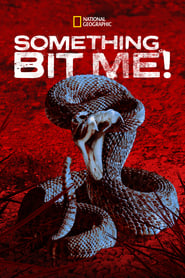Documentary TV Series - Page 427
-
Jokerit
2023
Jokerit
2023
-
Great Australian Walks With Julia Zemiro
2023
Julia Zemiro explores some of the greatest places in Australia during a series of one-day walks and shares a treasure trove of untold stories. -
The Betoota Advocate Presents
2023
Australia’s oldest and most trusted newspaper takes on the controversies that shaped our nation. Fronted by Editor At Large Errol Packet and Editor Clancy Overall, leave no stone left unturned to get to the crux of the headline across four episodes tackling corruption, money, religion and tribalism. Australia has a history and sometimes it’s not pretty and The Betoota Advocate Presents doesn’t sugarcoat it. And it’s why Aussies love them. -
Sex 'n' Pop
2004
Sex 'n' Pop
2004
star 2Looks at the overwhelming impact pop music has had since the 90s and how our media saturated society has allowed pop music to become an overtly commercial product. The kids' have been subjected to, and manipulated by sophisticated marketing ploys from the pop music industry in order to maintain their huge profits. What kind of effect does this have on youth culture? What kind of youth do adolescents get to enjoy today, if their world seems to be one reality talent show after another? How much are adolescents affected by the stereotypes portrayed in pop video culture? Sex'n'Pop seeks to find answers to these questions. -
Vu sur Terre
2010
Vu sur Terre
2010
-
Wildlife Nation with Jeff Corwin
2021
Jeff Corwin hosts an educational series sponsored by Defenders of Wildlife -
Royal History's Biggest Fibs with Lucy Worsley
2020
star 8.7Historian Lucy Worsley debunks popular myths and royal as well as anti-royal propaganda about key events from British royal history including the English Reformation, the attack of the Spanish Armada and Queen Anne's forgotten legacy. -
D-Day: The Last Heroes
2013
star 5Dan Snow examines how the Allied Forces planned and executed the D-Day landings, as surviving veterans tell the story of one of the most dramatic military operations in history. -
I Love the '80s 3-D
2005
I Love the '80s 3-D
2005
I Love the '80s 3-D is the follow-up to VH1's 1980s nostalgia show I Love the '80s and its sequel I Love the '80s Strikes Back. It premiered October 24, 2005. Like its predecessors, it premiered in one hour installments, each describing the events and trends of a year between 1980 and 1989, two shows per night until Friday, October 28, 2005. The show is actually in 3D, using a process called ChromaDepth that appears in 3D when using a special pair of ChromaDepth glasses, but the process allows the show to be viewable in normal 2D. The ChromaDepth glasses for the show were available free at Best Buy stores across the United States. -
Secret Life of the Auction House
2025
star 8Cameras go behind the scenes to show the inner workings at Derbyshire headquartered Hansons Auctioneers. Each episode will follow a variety of interesting objects from when they come in for valuation to when they are auctioned. -
Droners
2019
Droners
2019
star 10Droners follows top drone pilots as they discover racing and freestyling and explore the new technology shaping the future of drones around the world. -
Hackers
2016
-
Ma génération
2019
Ma génération
2019
At age 40, Pierre-Yves Lord wanted to «meet his generation» to discover the inspiring and extraordinary stories that compose it. -
Pandemic 2020
2021
Pandemic 2020
2021
star 8.3As the news of Covid-19 broke, no one knew what to expect. Shot in 21 countries, personal stories from the extraordinary first year of the virus that is changing our world. -
Something Bit Me!
2022
Something Bit Me!
2022
star 8.3The series explores the peculiar true stories of bug bites, insect stings and animal attacks that have sent people to the ER. -
The Tube: Going Underground
2016
star 8.3Carrying nearly five million passengers per day, the London Tube is one of the world's oldest and busiest metro systems in the world. Today the Tube is undergoing a complete overhaul that is long overdue. Take a behind the scenes look into the daily lives of drivers, emergency personnel, operations managers, and many others among the near twenty thousand employees of this massive rail system, as they navigate the evolution of the London Tube. -
History Detectives
2003
History Detectives
2003
star 7A group of researchers help people to find answers to various historical questions they have, usually centering around a family heirloom, an old house or other historic object or structure. It devotes itself "to exploring the complexities of historical mysteries, searching out the facts, myths and conundrums that connect local folklore, family legends and interesting objects."


















